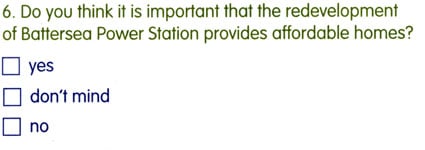Not new, but new to me: Lands’ End Virtual Model, allowing people to shop online for clothes and see what the clothes would look like on a person. The idea is that the person is you, the shopper, but there’s a fundamental disconnect between projection onto a mannequin (digital, even) and projection into a mirror. The person in the mirror is us. It doesn’t approximate us, it looks exactly like us and it naturally moves in response to our every movement. The virtual model is clumsy in comparison.
I think the whole notion of seeing the clothes in context is (including in combination) is brilliant, but I think the conceit (and it really is just that) of presenting this us a projection of us is completely wrong. Looking in the mirror is the gold standard and this breaks that badly. There’s a lot of customization (just like an avatar builder) of height, weight, body type, skin tone, hair style, etc.
So I started with

Umm, hello, body image norms?
and eventually customized him/me/it to end up with

Umm, is it weird to post this? It’s virtual, but the concept suggests this approximates what I look like in my underpants. I can tell you not to worry, it really doesn’t, but the idea seems a bit transgressive, because of the level of accuracy we expect from representations. A photograph isn’t me, but carries a certain truth. Also don’t worry, no actual underpants pictures of me are coming up in this post either.
As for the virtual me, I think we’ll feel better if he/me has some clothes on!

Frankly, I think this Simpsons avatar is more true version of me, even though it abandons reality, it also offers a kernel of truth and overall feels more accurate.

Update: maybe the avatar isn’t meant to be a model, but instead an effective salesperson?














